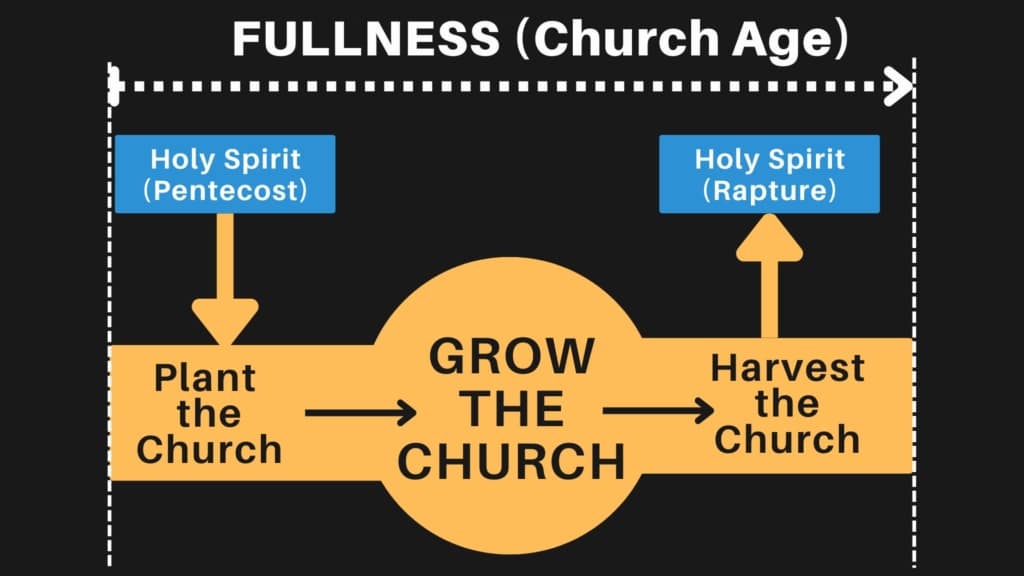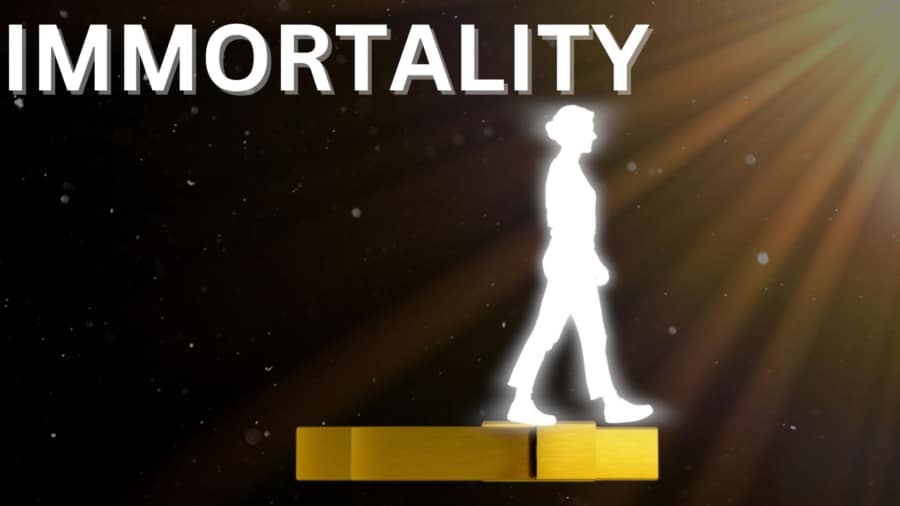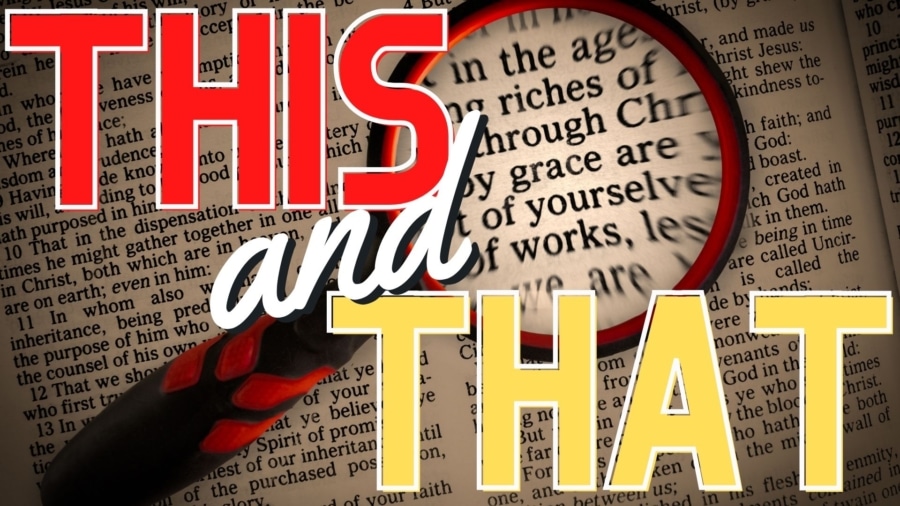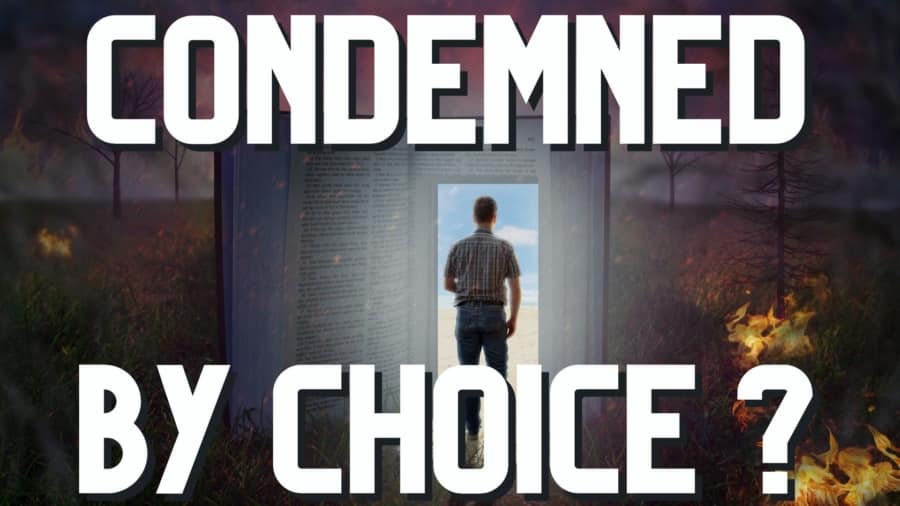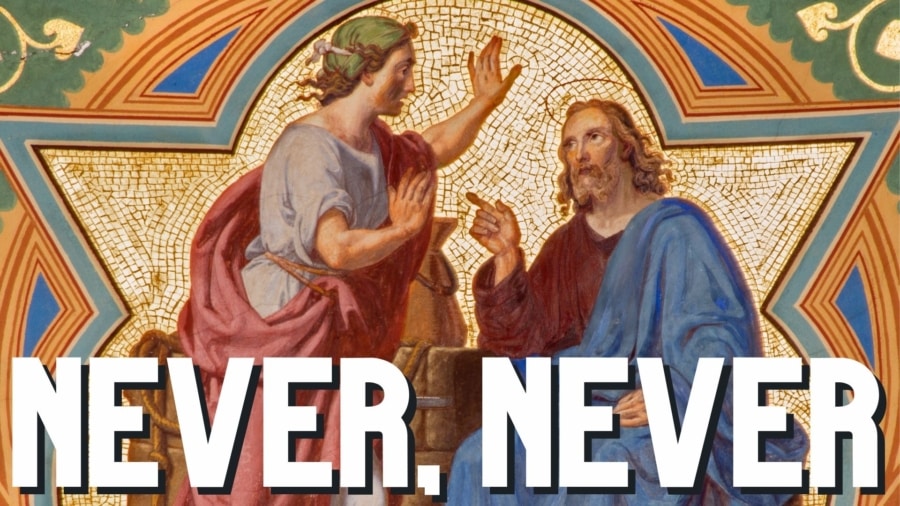This video is a follow-up to the previous “Rapture of the Church: Goodness and Severity.” These two videos, along with the next, discuss a little-studied rapture passage found in Romans 11:11 through Romans 12:2. References to the rapture are pictured for us by the Apostle Paul in the ancient practice of grafting olive trees, primarily to increase fruit-bearing. The olive tree pictured, of course, is Israel, while the wild olive branch is the church (“Gentiles”). As the Apostle to the Gentiles, Paul refers to “they” and “them” as the Jews, and “you” and “we” as the church, comprised mostly of Gentiles. While it’s sad that the church at large has turned it’s back on the Jews, and distorted scripture to justify it, we believers still have this mission and will be evaluated by the Lord as to our involvement in related fruit-bearing. In fact, the Apostle predicts that the church will be “cut off,” and that the “natural branches” will be grafted back in. This is a clear reference to the restart of Israel, a God-initiated modern event, the rapture of the church, and the “saving” of children of Israel during the Tribulation period.
Romans 11:23-24 starts with the grafting analogy, “For if you [gentile believer, church believer] were cut out of the olive tree, which is wild by nature and were grafted, contrary to nature, into a cultivated olive tree, how much more will these who are natural branches be grafted into their own olive tree?” The practice that they had in those days was to graft a sliver from a cultivated olive tree it into a wild olive tree that the wild olive tree might produce fruit. That’s the normal way of doing it. However, it goes against logic to graft a wild olive branch into a cultivated olive tree. But you must ask yourself the question, “What is the purpose of ingrafting? Why even do it?” To bring fruit from a tree that’s not producing! Dwell on that for a moment. Moses anticipated what was coming. In Deuteronomy 32:21 he said in essence, “I’m going to take a people who are not even a nation.” David also predicted the in Psalm 102, that God would “create a people that doesn’t exist” yet. Paul goes on to apply these prophesies to the church. In fact, he states quite emphatically in Romans 11, that the role of the church in relation to the nation of Israel is to “provoke them to jealousy.” The word jealousy Paul uses is really “zealousness.” Remember, earlier in Romans 10, Paul reports that his “heart was poured out for the children of Israel because they had a zeal for God, but not according to knowledge.” Where are they going to get the knowledge? Tribulation saints are going to get the knowledge from the Apostle Paul’s epistles and from the ministry of the church
Question: What must happen for Israel to be grafted back in? Answer: We must be cut off. This is the pre-tribulation Rapture of the church. It’s the only perspective that makes any sense Biblically. Romans 11:25 says, “I do not desire, brethren, that you should be ignorant.” Most churches today are ignorant. Church goers are like kids lost in the city who have no idea where they are nor where they’re going. We can’t see the signs, even though they’re all around us. Let’s not be ignorant. Paul says, “I do not desire that you be ignorant of this mystery.” We’ve seen “mystery” again and again: in 1st Corinthians 15, 1st Thessalonians 5, and 2nd Thessalonians 2. “Mystery” refers Church Age Doctrine specifically that which was revealed to the Apostle Paul. Paul says, “I do not want you to be ignorant this mystery, lest you should be wise in your own opinion.” That’s the arrogance and attitude of superiority and condescension to the nation of Israel. “Lest you should be wise in your own opinion, that blindness in part has happened to Israel until…” Here’s the key word, “until.” How long will the nation of Israel be blind? Why are they blind? The reason for the blindness is listed in 2nd Corinthians 3. Paul talks about the veil and in the reading of the law, covering their eyes. He states that, “the veil remains even to this present hour. But when they turn to Christ, the veil is taken away.” That’s been true of Jews throughout the entire duration of church history. Suddenly, however, and almost instantaneously, with the opening of the eyes of 144,000 Jewish evangelists following the rapture of the church, the veil will be lifted. “Blindness in part” now, because, some Jews have come to Christ. Yes, it’s a wonderful thing when you see a person that comes out of the people of Israel come into the church. But you know what? Once they come into the church, the fact that they’re out of Israel, doesn’t make them a superior Christian. They’re simply a member of the church. Remember that part of the mystery is that we are one body now — “neither Jew or Gentile, male or female.”
Remember that blindness, in part has happened to Israel “until” the rapture of the church. This is “the fullness of the Gentiles,” as it says in Romans 11:25. And when “the fullness of the Gentiles has come in,” when the harvest of the Gentiles has come in, Jewish blindness is going to be removed. Romans 11:26 continues, “And so all Israel will be saved as it is written, the deliverer will come out of Zion.” This quotes a Second Advent prophecy. “And he will turn away ungodliness from Jacob, for this is my covenant them.” God keeps His covenants! “…when I take away their sins.” Now notice carefully. Verse 28 says, “Concerning the Gospel, they are enemies, for your sake.” There are many among the Jews who hate us. And this is amazing because their economy depends largely on tourism that is fueled by Christian pilgrims going to Israel. And they love the crowds, the groups. When you go there, you see the tour busses, you see this and that church, this, and that ministry. Most Jews love that, but they hate your faith. If you want to see some hostility, ask a Jewish person why the most famous Jew that ever walked the planet is disregarded by the nation of Israel. Try to tell them that the Messiah that they rejected is the Messiah that’s coming back. Paul captures what was true then and now, “they are enemies against you for the gospel’s sake,” because as a people, they continue to reject him. That’s their problem, their hang up. But I want you to notice what Paul says here, “concerning the gospel, they are enemies, for your sake, but concerning the election, they are beloved for the sake of the fathers.” Could I suggest something to you? The term “election” is never used for salvation in the Bible election. “Election” is always to a purpose. God chooses for a purpose. And Jew are the elect for a purpose — to give the world a Bible and a Redeemer. The preponderance of the “elect” references in scripture are about the nation of Israel. We church age believers are elect for only one reason, and that is because we were grafted in to serve a purpose for them, the children of Israel.
“Concerning the election,” namely, the choice of God for that nation, “they are beloved for the sake of the fathers.” When the church stops loving the nation of Israel because of what God did through Abraham, Isaac, Jacob and all the others, we’ve lost our sense of direction. We are adrift spiritually. The next verse that we like to quote all the time about ourselves. Romans 11:29 says, “But the gifts and the calling of God are irrevocable.” That’s true of us, but only by application. The context tells us Paul’s talking about the nation of Israel. He continues in Romans 11:30, “For as you were once disobedient to God and yet now have obtained mercy through their disobedience.” Look at this word “mercy.” Is Paul making a point? In verse 31, “Even so, these Israel have now been disobedient that through the mercy shown to you, they may obtain mercy for God has committed them all to disobedience, that He might have mercy on all.” And then Paul goes into a doxology as if he is just so overwhelmed with his thoughts. And he says, “Oh, the depth of the riches, both of the wisdom and the knowledge of God. How unsearchable are His judgments and His ways past finding out. For who has known the mind of the Lord or who has become His counselor or who was first given to Him, and it shall be repaid to Him? For of Him and through Him and to Him are all things to whom be glory forever and ever, amen.”
Take out the chapter division and read the next two verses. Paul concludes, “I beseech you [Church] therefore, by the mercies of God.” What did we see last in Romans 11? Mercy. Mercy. Mercy. “I beg you, therefore, brethren, by the mercies of God, that you present your body as a living sacrifice, wholly unacceptable under God, which is your reasonable service of worship, and do not be conformed to this world, but be transformed by the renewing of your mind so that you may prove what is that good and acceptable and perfect?” What is the perfect will of God that He’s just told us about? A ministry of the Church to Israel — a ministry that will ultimately see them restored. This is a ministry that the church, for the most part, for 2000 years has failed in. Martin Luther was a magnificent giant, a man of tremendous spiritual stature, but he was antisemitic to the core. Luther hated the Jews. He wrote that they should be annihilated. In fact, when Hitler quoted Martin Luther to get the churches of Germany to support him in the annihilation of the Jew. Churches either went along actively or passively. The Church at large today is doing the same thing. Our world hates the Jew. What do you think Paul’s talking about when he says, “Do not be conformed to this world, be transformed by the renewing of your mind?” And then he goes immediately into spiritual gifts in ministry.
Every believer has a spiritual gift. Every believer has a ministry with a two-pronged focus — the great commission to the world at large and particularly a ministry to the children of Israel. It is a shame and a disgrace that when the world has persecuted the Jews, we as a church have not played the role that we should have played. We should have been a shield to them. There are wonderful exceptions, but they are so few and far between. The Ten Booms of history, risked their lives and ultimately paid by being sent to prison camps for hiding, protecting, feeding, clothing Jews. Similarly, during the tribulation period there will be believing Gentiles who will literally lay their lives on the line for the Jewish people. And that, by the way, is another reason why the rapture cannot come at the second advent. It must come before the tribulation, because when Jesus comes at His second advent, He is going to separate the nations. And how does He separate them? What does He call them? He calls them sheep and goats. And the goats are unbelievers, and the sheep are believers. But what does He say to those who are sheep, those who have come through this terrible, terrible time of tribulation? He says, “I was hungry. You fed me. I was naked. You clothed me. I was in prison. You visited me.” And what are they doing that He says this to them? They are doing something the church has failed to do, and that is they’re laying their lives on the line for the nation of Israel.
Can you begin to see that, you can’t just rip “the Blessed Hope” out of its historical context. You can’t divorce it from where we’ve come. You can’t take this branch called “the church” and just break it off the tree and say, “Forget the tree, forget the roots.” You and I need to be transformed. And our transformation is not only so that I can reach a world in need of Christ, but so that I can stand up as a proponent of a people who have been hated and despised since the day they were born in their father, Abraham. Could I just throw this out as a last thought? One day you’re going to walk the streets of Jerusalem. Whether the Jerusalem of the Earth or the New Jerusalem. You are going to walk the streets and you’re going to meet Moses, Abraham, Sarah, Isaac, Jacob, Boaz, Ruth, Isaiah, and Jeremiah, etc. You’re going to meet them. Do you know that? They’re going to know your history. They’re going to know whether we, the church, did our job. They’re going to know whether we been the shield for Israel that we should have been. I don’t want to have to hang my head in their presence. I want my “blessed hope” to truly be a blessed hope.


